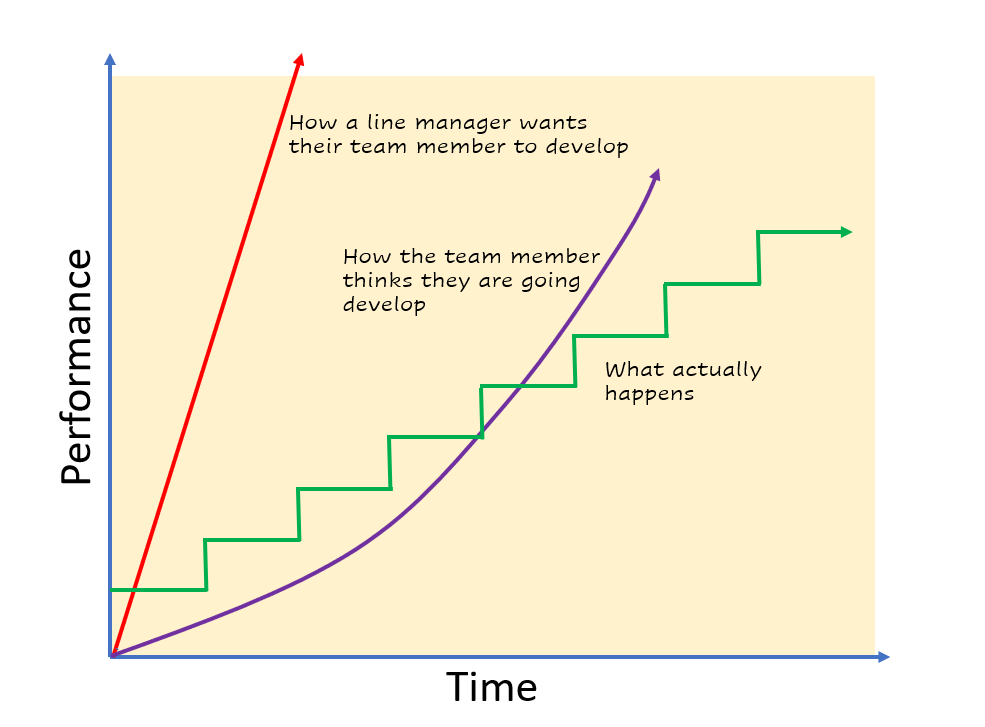
I’ve recently had conversations with several leaders who want an instant performance uplift from sending their team member on training or development.
Of course this is really understandable. There they are. They need their team members to be fully competent in either skills, knowledge or behaviours required by their job role. And, of course, they need the required level of performance as quickly as possible. Why wouldn’t they have an expectation that investing in a development opportunity would produce the expected proficiency levels?
The trouble is that this is to put far to many eggs in the basket called the training event.
Development very seldom occurs that way and there are differences in perspectives and expectations.
The manager wants the speediest return on proficiency and performance as possible. The individual, too wants to improve, but depending on their experience realises that newly learned skills, knowledge and perhaps changed behaviour requires application, trial and error, sufficient practice to ingrain the learning. The manager knows this too, but they tend to be a little bit more impatient for the results.
Learning curve expectations seldom reflect the reality of the work context or the continuing needs of the individual.
In reality the performance ‘climb’ over the shortest period of time for the individual and their manager is more of an incremental step-by-step series of improvements. And, indeed, depending on the situation, some of the incremental steps may not even be upwards.
Sustaining that growth in performance improvement requires a surround that continues the nurturing and at times coaching of the individual; providing appropriate feedback end continued encouragement to reinforce competence, commitment and confidence over time.
So, leaders need to think carefully about how they engage with and support their team members to ensure they accelerate performance improvement in context. Being really busy and leaving all the responsibility for improvement in job performance to HR or the training department is a little like abdication.
The role and the engagement of the line manager in the development of their team members performance has to be before, during and after the learning intervention.
Then maybe they might influence an acceleration in the level of performance they are looking for.
